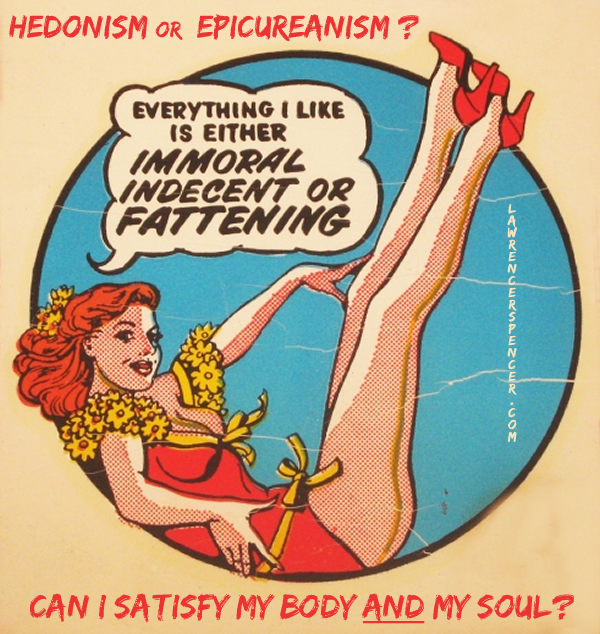Republished by Blog Post Promoter
Hedonism is a school of thought which argues that pleasure is the only intrinsic good. In very simple terms, a hedonist strives to maximize net pleasure (pleasure minus pain). In contrast to the philosophical understanding is in the commonplace use of the term hedonism, often referred to an oriented only to momentary pleasures selfish attitude. Ethical Hedonism is the idea that all men have the right to do everything in their power to achieve the greatest amount of pleasure possible to them. It is also the idea that every man’s pleasure should far surpass their amount of pain. Along with those ideas ethical hedonism supports that idea that it is morally and ethically right to do what is needed to achieve such pleasure. It is said to have been started by a student of Socrates, Aristippus of Cyrene. He held the idea that pleasure is the highest good. He also said that everyone should try to attain pleasure at every time they possibly could.
Epicureanism is a system of philosophy based upon the teachings of Epicurus (c. 341–c. 270 BC), founded around 307 BC. His materialism led him to a general stance against superstition or the idea of divine intervention. Epicurus believed that the greatest good was to seek modest pleasures in order to attain a state of tranquility and freedom from fear as well as absence of bodily pain through knowledge of the workings of the world and the limits of our desires. The combination of these two states is supposed to constitute happiness in its highest form. Although Epicureanism is a form of hedonism, insofar as it declares pleasure as the sole intrinsic good, its conception of absence of pain as the greatest pleasure and its advocacy of a simple life make it different from “hedonism” as it is commonly understood.
In the Epicurean view, the highest pleasure (tranquility and freedom from fear) was obtained by knowledge, friendship and living a virtuous and temperate life. He lauded the enjoyment of simple pleasures, by which he meant abstaining from bodily desires, such as sex and appetites, verging on asceticism. He argued that when eating, one should not eat too richly, for it could lead to dissatisfaction later, such as the grim realization that one could not afford such delicacies in the future. Likewise, sex could lead to increased lust and dissatisfaction with the sexual partner. Epicurus did not articulate a broad system of social ethics that has survived.
(Source: Wikipedia.org)

